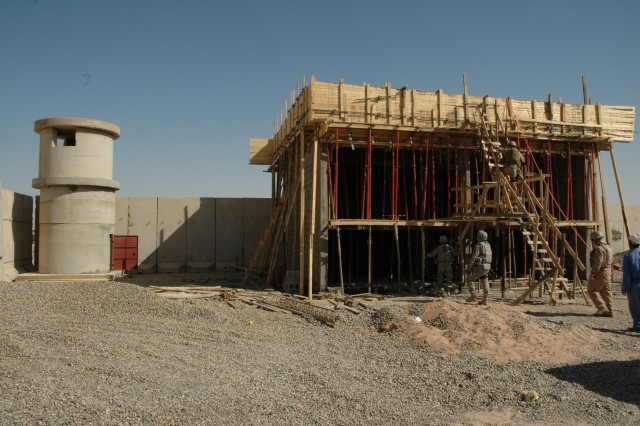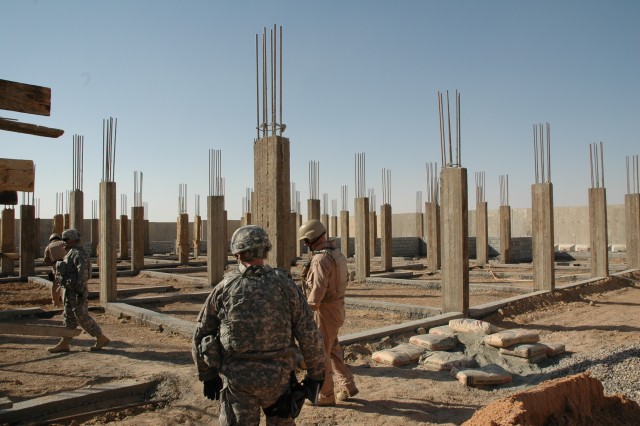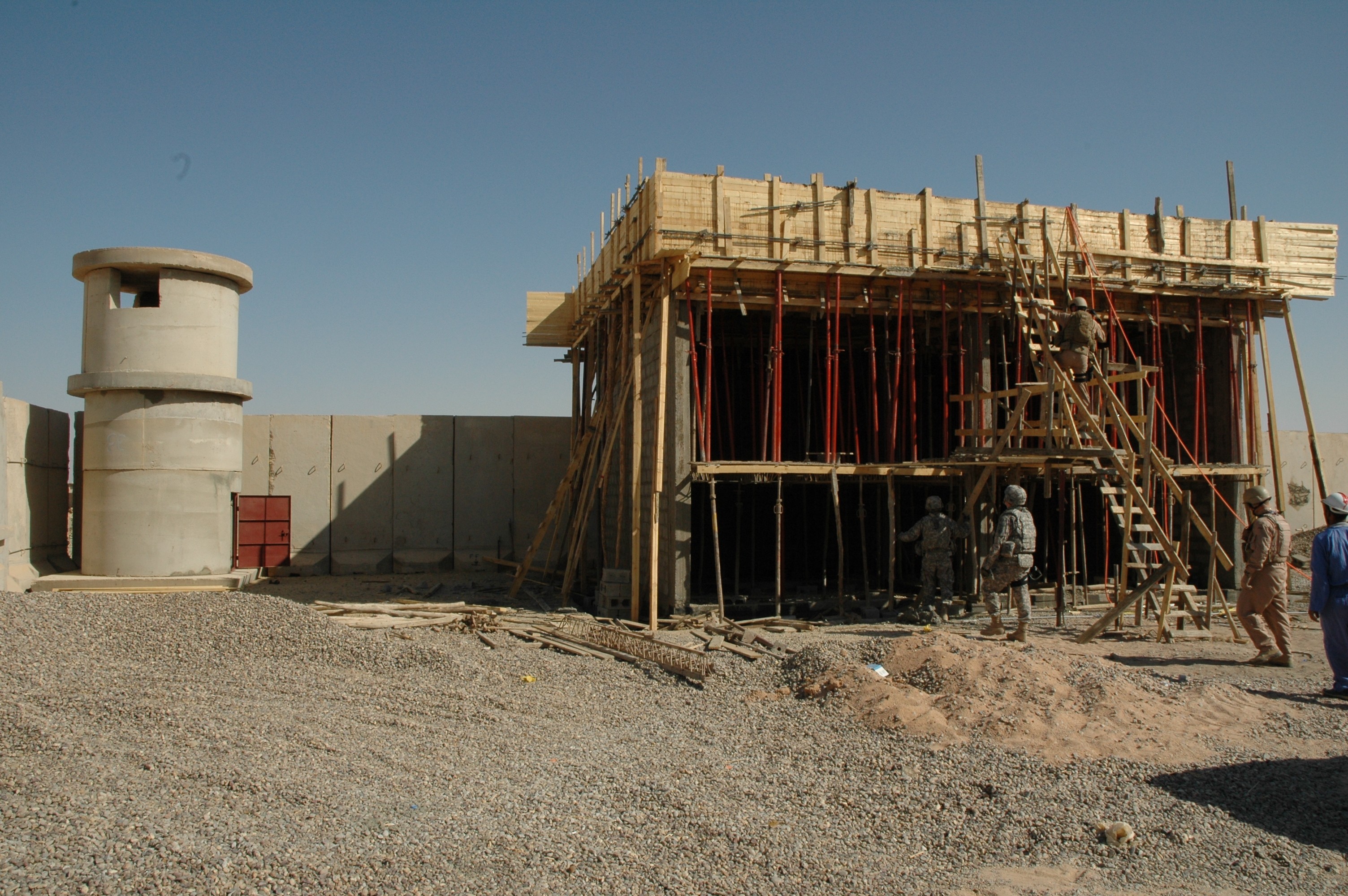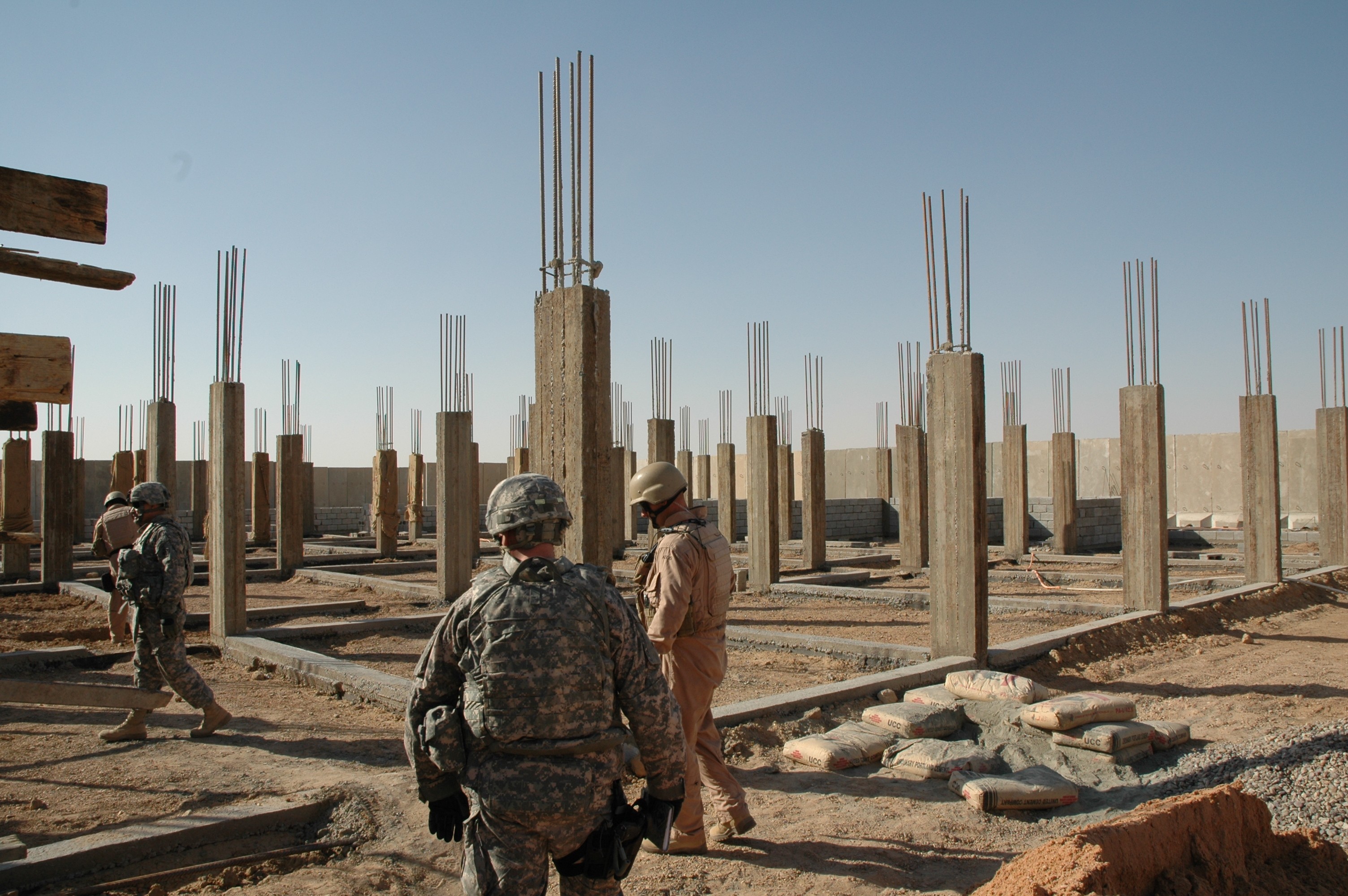AL ANBAR PROVINCE, Iraq -- Gen. Dwight D. Eisenhower said, "The clearest way to show what the rule of law means to us in everyday life is to recall what has happened when there is no rule of law."
The U.S. Army Corps of Engineers Gulf Region Division in Iraq, in partnership with the Iraqi government, has undertaken a number of projects throughout Iraq to provide a stable, safe environment so that the rule of law can flourish under Iraq's emerging democracy.
GRD projects, managed by the Gulf Region District's Ramadi Resident Office and the Al Asad Project office, include the construction of two new police stations near Ramadi and security upgrades to two courthouses - one in Al Qa'im and one in the ancient city of Hit.
Legal experts are in consensus that judicial reform is the cornerstone to a stable, peaceful solution for Iraq and its people. And although Iraqis have made huge strides to reign in the lawlessness that followed the overthrow of Saddam Hussein, they realize that much more needs to be accomplished to stabilize law enforcement and the judiciary.
"These projects will allow local judges and rule of law advisers to exert the necessary influence into a previous hostile environment without fear of reprisal," said Maj. Arlo Reese, the officer in charge of the Al Asad Project Office.
Engineers from the Al Asad Project Office are managing both courthouse projects that included the construction of entry control points, security lighting upgrades and the installation of backup generators. The Al Qa'im courthouse project also includes the placement of T-walls surrounding the facility. Funding for the $750,000 project was provided by the International Narcotics and Law Enforcement Fund.
The Iraqi owned Al Mashriq Al Arabee Company is the general contractor for both courthouse projects.
The Muhammadi and Ramadi Highway police stations are of similar design and include the construction of a two-story, 20-meter by 30-meter building that includes office space, a conference room, bathroom and shower facilities, a kitchen and an armory. Force protection measures for the police stations include T-walls surrounding the building, guard towers, a control entry point and security fencing. Both stations will have a complete power generation plant with diesel generators.
Lt. Dalone T. Jenkins, the officer in charge of the Ramadi Resident Office, said the police stations are a vital security link for the Ramadi area.
"These police stations are important because they will provide a platform for Iraq to maintain safety and stability for its citizens," said Jenkins. "This safety and stability extends from major thoroughfares of commercial trade, such as the highways, to the outlying cities, towns and villages. Iraqi's are ready to take control of their country."
The Iraqi-owned Altayf Al-Abiad Company is the general contractor for both police station projects. The total cost for both stations is $4 million with funding provided by the Iraqi Security Force Fund. More than 30 local Iraqis are working on the project, which is scheduled to be completed in early 2010.
The Gulf Region Division has completed thousands of reconstruction projects in partnership with the U.S. government and the government of Iraq. Since 2004, GRD has completed 5,257 projects throughout Iraq valued at more than $8.9 billion, and has 361 projects ongoing.






Social Sharing